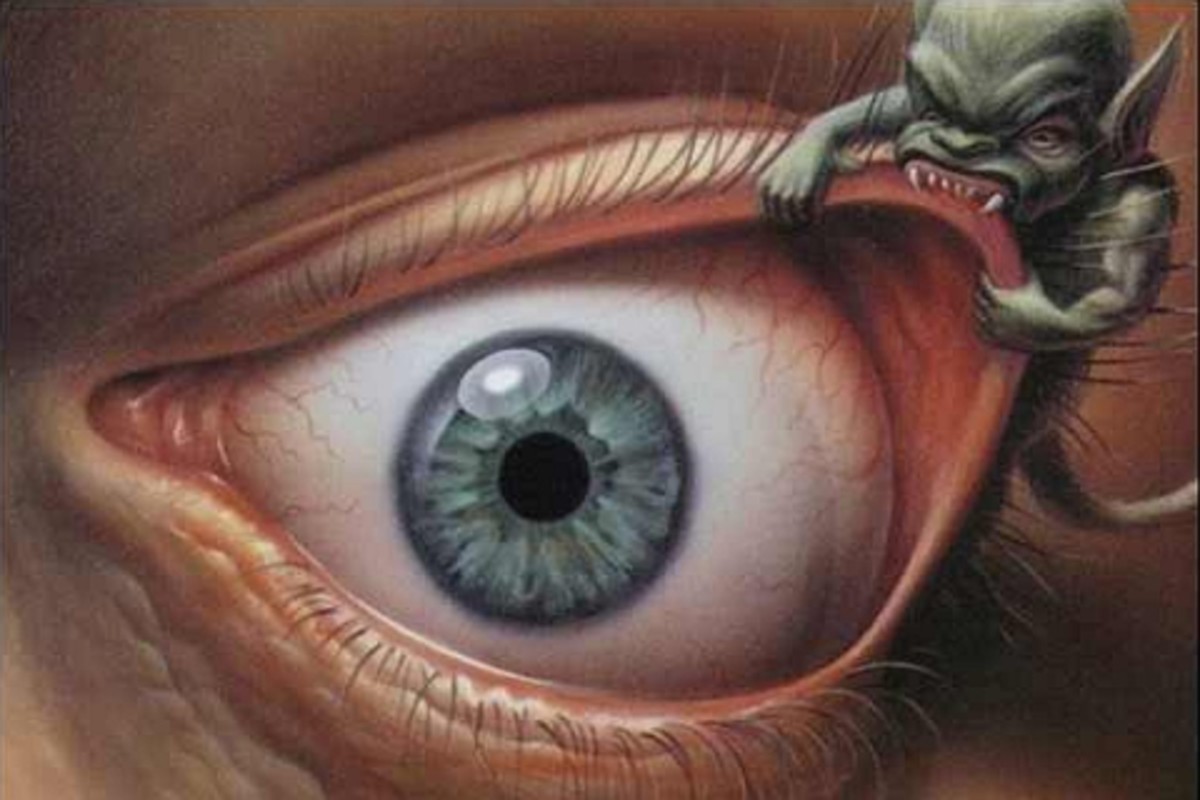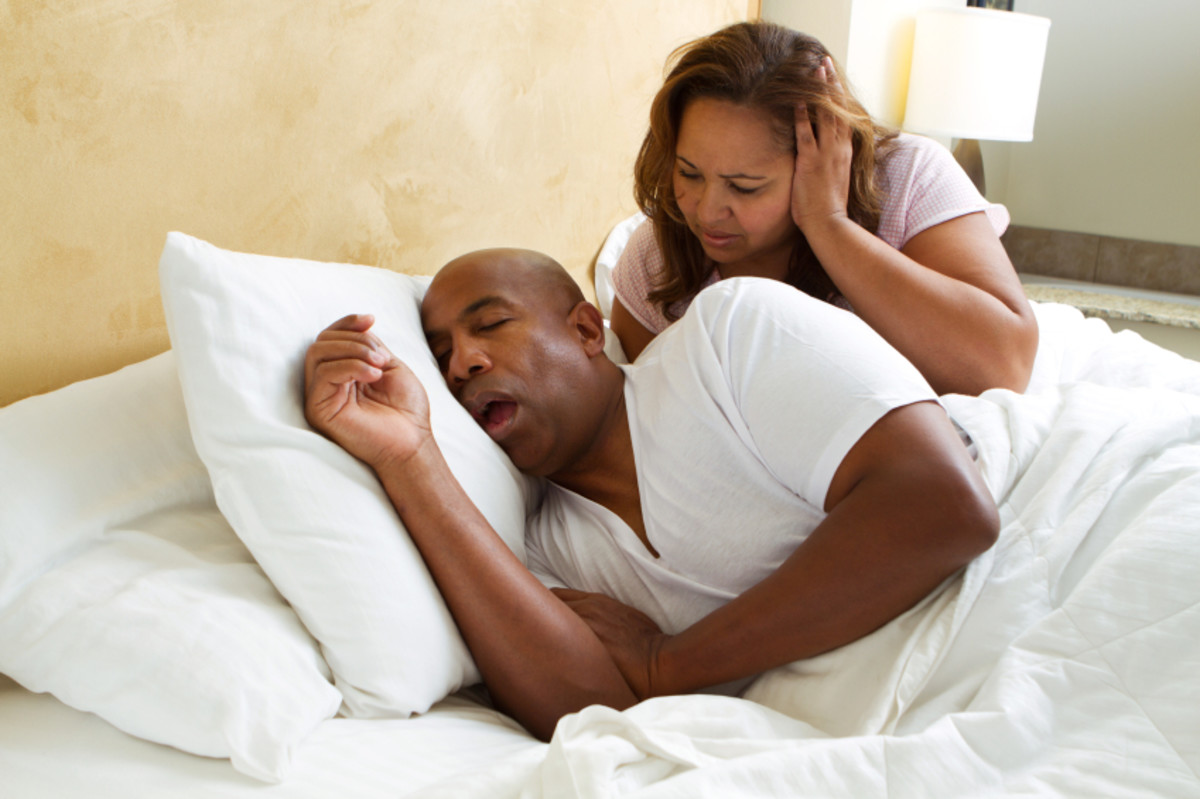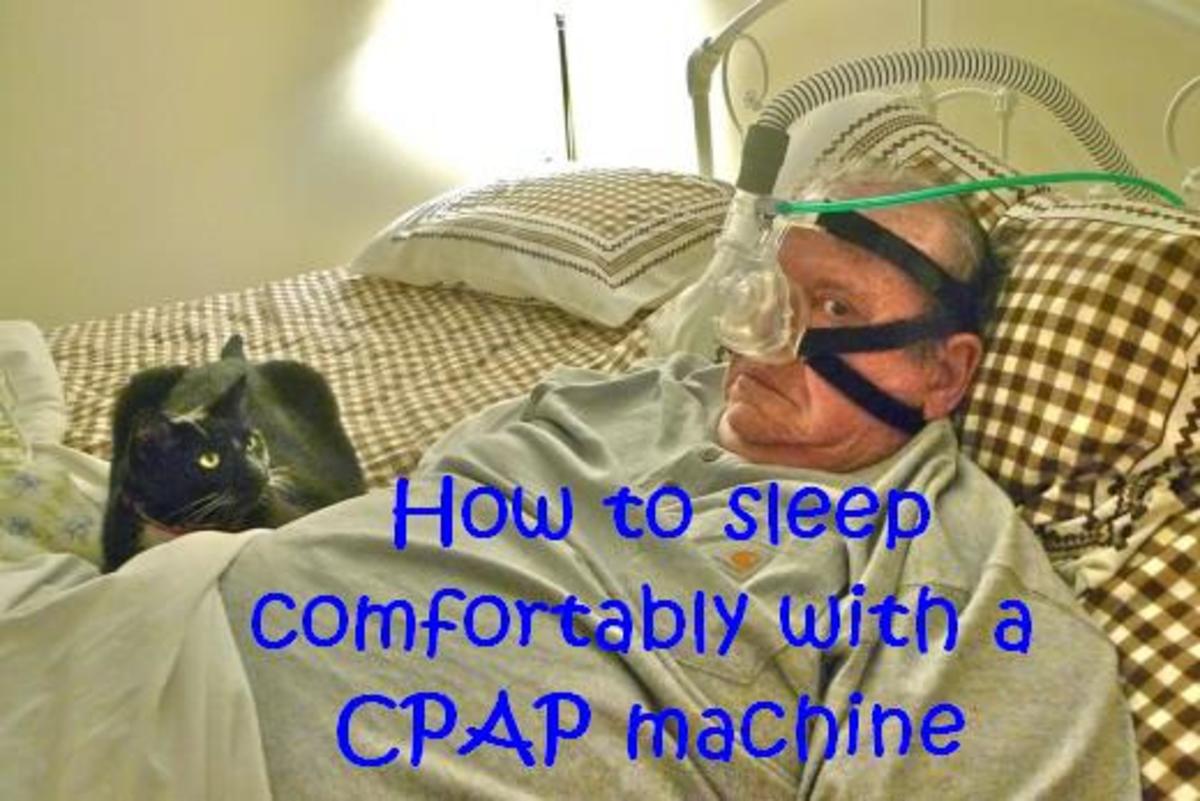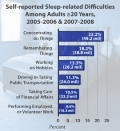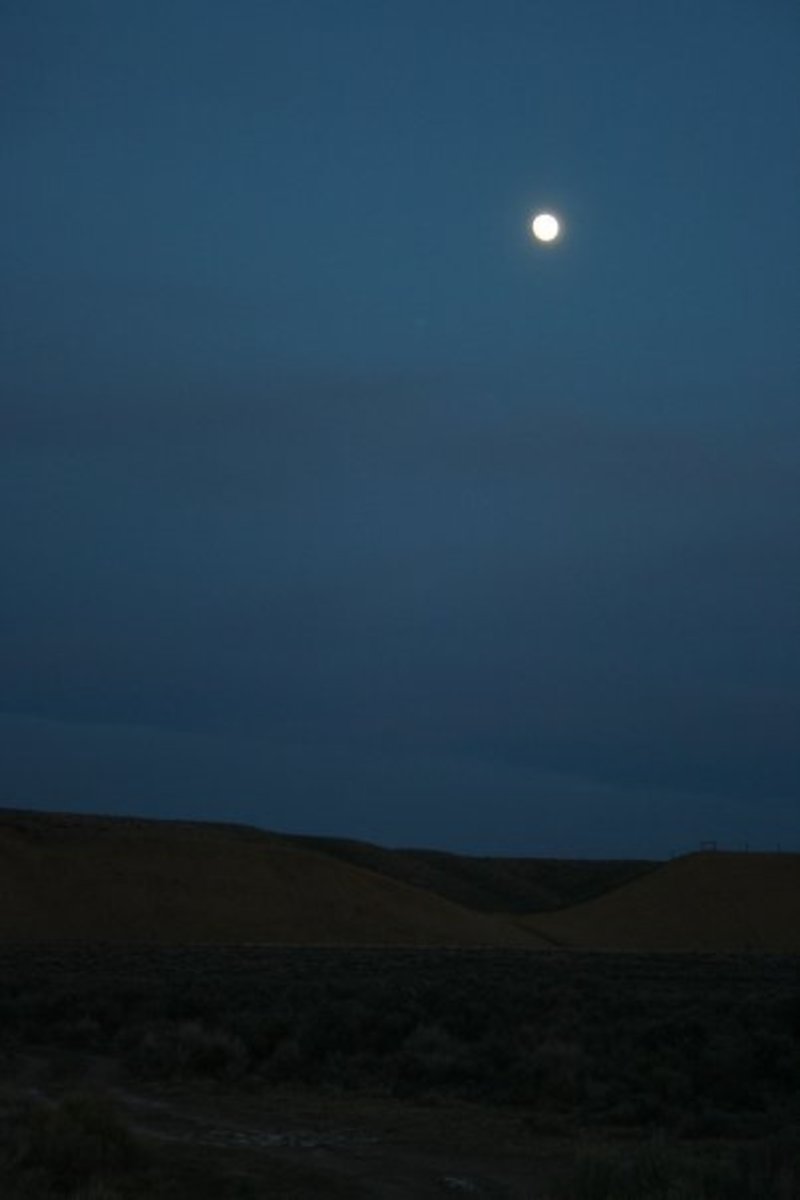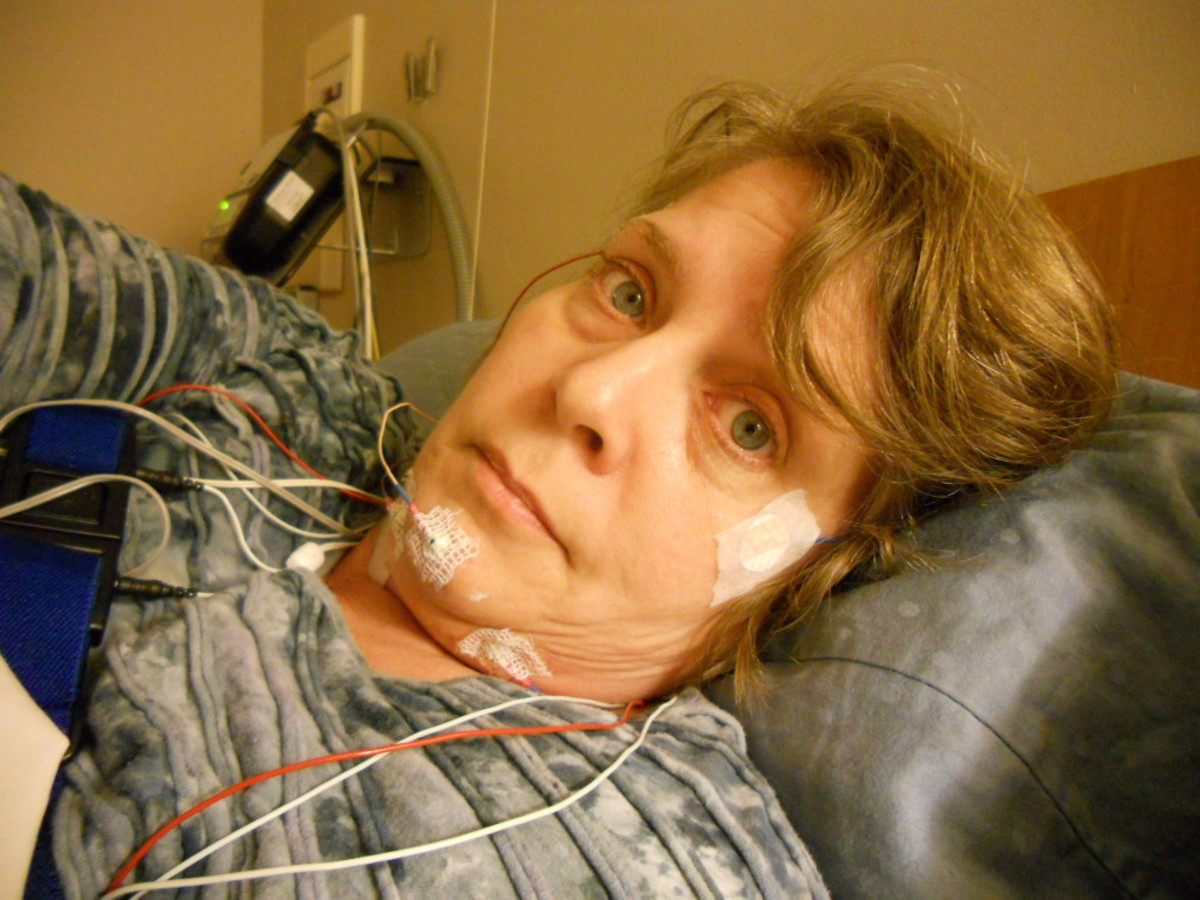Sleep Disorders Explained
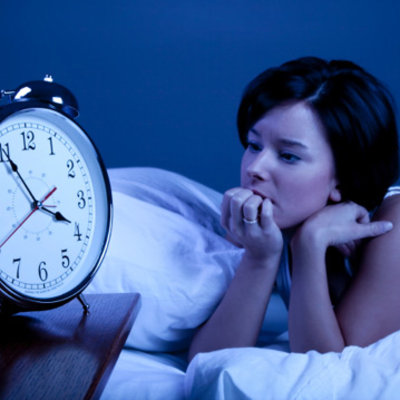
What Is Insomnia?
Insomnia is a sleep disorder that takes into account the length and efficiency of a person's sleep. This is because everyone sleeps for a different amount of time, it may be that someone can only sleep 3 hours and feel refreshed whereas others will sleep 12 hours and still feel like they are sleep deprived!
Insomnia may involve the person having trouble falling asleep in which case it is called initial insomnia, having trouble staying asleep (Middle insomnia) or waking up too early (terminal insomnia).
Insomnia can also either be short-term (transient), occasional (intermittent) or long-term (chronic).
Causes?
Insomnia can either be a symptom of another disorder (secondary isomnia), or it can be a disorder in it's own right (primary insomia).
An example of secodary insomnia is if a person as too much caffiene in their diet and therefore can't sleep, also a lot of people who suffer from depression also suffer from insomnia as a sympom of this.
Primary insomnia is defined as insomnia that occurs for more than a month with no known cause. Primary insomnia can be due to bad sleeping habits such as sleeping in a light room or often staying up really late. Another cause could be that the person previously suffered from secondary insomnia that has disappeared over time but the person still expects that they will sleep badly, so they do.
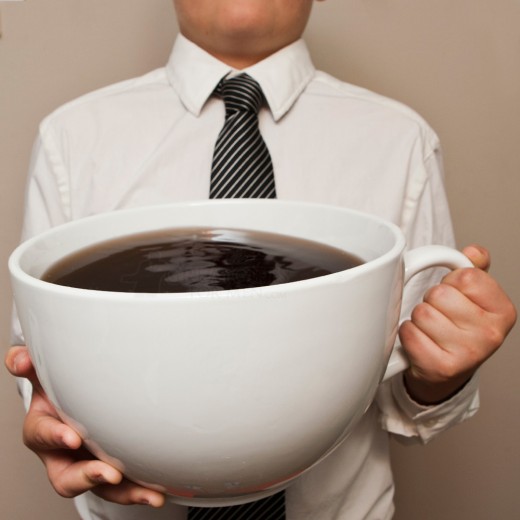
Insomnia Risk Factors
There are a few points that can make a person more prone to insomnia:
- Caffeine intake - too much caffeine can disturb sleep.
- Age - Older people are more prone due to increasing physical problems that can disrupt sleep.
- Gender - hormone fluctuations in women may cause sleep disruption.
- Sleep apnoea - a disorder where a person stops breathing whilst they are asleep, it can last between a few seconds to a few minutes and can occur up to 5-30 times in an hour.
- Personality - people that tend to internalise problems as opposed to acting them out or being aggressive may be more likely to suffer from insomnia.
Treatments
Relaxation techniques and improving sleep 'hygiene' are the two main treatments for insomniacs. Sleep hygiene refers to increasing healthy sleep habits such as not consuming excess caffeine, sleeping in darker rooms, doing more exercise and not napping in the day.
Phototherapy is when sedatives or anxiety drugs are used to treat the insomnia but because of side effects such as drowsiness they are only normally used for transient insomnia.
Psychological methods, such as sleep restriction therapy, can also be used. Sleep restriction therapy is where the person is restricted to sleeping only a couple of hours a day and then this is gradually increased until they are sleeping a normal amount. This teaches the person to only associate their bed with sleep as they only go to bed when they are really tired.

What Is Narcolepsy
Narcolepsy is a sleep disorder in which the person suffering from it will experience sudden, unexpected and uncontrollable attacks of sleep which can last anywhere between a few seconds and a few minutes.
The two main symptoms that a suffer of narcolepsy will experience is the feeling of tiredness all the time and also the loss of control of their muscles (known as cataplexy). However, there are also other symptoms such as hallucinations and sleep paralysis.
Narcolepsy can be triggered by a range of emotional arousals such as anger or stress and usually begins in a person's teenage years and will continue until early adulthood.
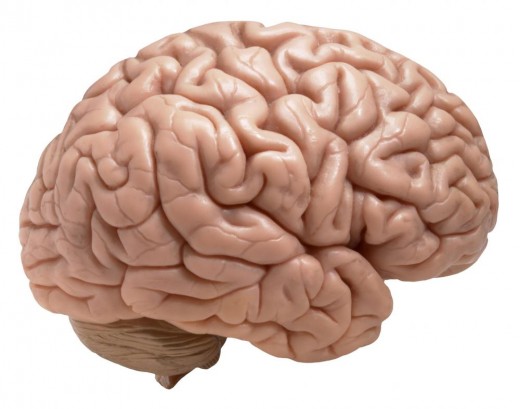
Causes?
It has now been found that many cases or narcolepsy are caused by an autoimmune response to an antibody called trib 2.
This response means that the antibodies will attack the bodies healthy cells instead of the diseased ones. It has been found that these antibodies will attack the part of the brain that produces the chemical orexin which leads to lower levels of orexin in the brain and can then lead to narcolepsy.
It is also now known that people who suffer from narcolepsy will often go into REM sleep a lot earlier than people who don't suffer from narcolepsy. REM sleep involves cataplexy (aforementioned symptom of narcolepsy) which means that if the person falls asleep during the day and falls into REM sleep really quickly they can experience the lack of muscle control and also the interference of REM-type sleep in daytime naps (hallucinations).
Treatments
Sticking to very strict sleep regimes and also taking frequent short naps throughout the day may help to overcome the disorder.
Also generally having a healthy lifestyle (eating well and exercising regularly) can help to treat narcolepsy.
In severe situations stimulant drugs (such as dexamphetamine) can be prescribed to a person suffering from narcolepsy to keep them awake throughout the day. However it is good to avoid this treatment where possible because there are some side effects such as headaches and dizziness.

